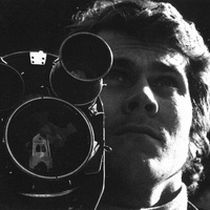


East Beats West

A Love Affair – and a small follow-up on the review of “Blind Loves”:
It all started around 1990. Even though I had been working for the National Film Board of Denmark since 1975, my knowledge was very limited when it came to documentaries from the Eastern part of Europe. Of course I had seen films by masters like Kieslowski, Herz Frank, Jerzy Bossak and Mihail Romm. But otherwise, the general talk and writing about documentaries worldwise had always been referring to the English and American.
It is still like that – this lack of balance is wrong and will not last. The Eastern Europeans are getting so much better to promote their contribution to the world documentary cinema, so read my lips: East Beats West.
One day the recognition will come because of: High Quality. Compelling Stories. Artistic Competence. Multi-layered Theme Approach. Humour.
Back to 1990-2000 where I had the chance to watch carefully the development of the documentary in Russia, Estonia, Latvia, Lithuania and Poland. At the Balticum Film/TV Festival on Bornholm in Denmark.
I saw minimalistic and conceptual humanistic masterpieces by Sergey Dvortsevoy (Bread Day) and Viktor Kossakovsky (Wednesday) from Russia. I watched the intelligent cultural etnodocumentaries (Miss Saarema) by Mark Soosaar from Estonia. The powerful non-journalistic interpretation of the fall of USSR by Juris Podnieks (End of Empire), student of Herz Frank from Latvia, as well as Ivars Seleckis warm collective portrait of people (Crossroad Street).
The most significant revelation, however, were the films from Lithuania. I got to know a whole school of poetic filmmakers headed by Audrius Stonys (Antigravitation) and Arunas Matelis (Ten Minutes Before the Flight to Icharos). Not to talk about the unique philosophical film of Polish Marcel Lozinski (Anything Can Happen), who lets his small son run around in a park asking all kind of questions to old people. Pure beauty and so far from the mainstream of formatted predictable rationality that is poured out on Western tv stations night after night called documentaries.
I still follow the Baltics closely, but I also moved south in my discovery of Eastern European documentary cinema. Through the IDF (Institute of Documentary Film) team and EDN I got closer to the Czech and Slovak situation. There is still a whole world to discover for me, in retrospect, but you should know much better the masterpieces of Dusan Hanak (Pictures of the Old World) and Mira Janek (Unseen). They are true masters of the humanistic documentary. And then there is this strange character Jan Gogola, an excellent dramaturg, who talks about documentaries and the challenge to make ”open structures” and who has helped obvious world class original talents like Filip Remunda and Vit Klusak (The Czech Dream) and Peter Kerekes (66 Seasons).
Further to the South lies Hungary and the name of Peter Forgasz is already well established and his latest film (Miss Universe) is simply superb. As are the films of Bulgarian Andrey Payanov (The Mosquito Problem) and Romanian directors Florin Iepan (Ceaucescus Decree) and Ileana Stancalescu (The Bridge). I will get back to the Serbs, the Croatians and the Macedonians on another occasion.
Foto: Juris Podnieks (1950-1992)